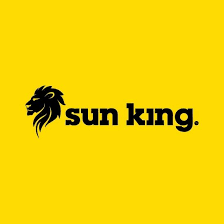Sun King, a global leader in off-grid solar solutions, has secured a landmark $80 million (N128 billion) loan to expand access to electricity in Nigeria. This significant investment, facilitated by the International Finance Corporation (IFC) and Stanbic IBTC Bank Ltd., represents the largest local-currency financing agreement for energy access in Nigeria’s history. The deal’s structure, denominated in Nigerian naira rather than US dollars, is a crucial element, mitigating foreign exchange risks and allowing Sun King to offer more affordable financing options to its Nigerian customers. The company plans to utilize the funds to provide solar power systems to an additional four million households over the next five years, more than doubling their current reach of two million homes in the country. This initiative aligns with global efforts to address Africa’s energy deficit and contributes significantly towards achieving universal energy access.
The financing secured by Sun King is particularly impactful due to its focus on local currency. By eliminating the volatility of foreign exchange rates, the naira-denominated loan ensures greater price stability for Nigerian consumers. This allows Sun King to offer its solar products at more accessible prices, making clean energy a viable option for a larger segment of the population. This financial strategy is vital for expanding access to electricity in a nation where a substantial portion of the population remains unconnected to the national grid. The affordability of Sun King’s solar solutions, with daily payments of around $0.21 (N320) over a year, makes the transition to clean energy manageable for low-income households.
Nigeria faces a significant energy access challenge, with approximately 90 million people, nearly half the population, lacking access to grid electricity. Many rely on expensive and polluting alternatives like diesel generators and kerosene lamps, hindering economic development and impacting quality of life. Sun King’s expansion aims to address this gap by providing reliable and affordable solar power to rural communities, replacing these inefficient and environmentally damaging options. The company’s solar kits, comprised of small panels and rechargeable batteries designed to last up to a decade, offer a sustainable and cost-effective solution. The reliable power provided by these systems enhances the quality of life for families by enabling access to lighting, information, and improved opportunities.
This investment in off-grid solar aligns with broader international initiatives aimed at closing Africa’s energy access gap. Specifically, it contributes to Mission 300, a collaborative effort between the World Bank and the African Development Bank. This initiative aims to connect 300 million people in sub-Saharan Africa to electricity by 2030 through a combination of public and private investments in scalable and affordable energy solutions. Sun King’s work in Nigeria exemplifies this approach, demonstrating the potential of private sector engagement in achieving universal energy access. This project signifies a crucial step towards achieving the United Nations’ Sustainable Development Goal 7, which aims to ensure access to affordable, reliable, sustainable, and modern energy for all.
Sun King’s success in securing this substantial loan builds on previous achievements in expanding access to off-grid solar solutions across Africa. In 2021, the company, formerly known as Greenlight Planet, secured a $75 million investment in Kenya to expand its operations in the country. This consistent focus on providing off-grid solar solutions underscores the company’s commitment to addressing energy poverty across the continent. The Nigerian investment reinforces Sun King’s position as a leading player in the off-grid solar market and highlights the growing potential of renewable energy solutions to transform lives in underserved communities.
The impact of Sun King’s expansion in Nigeria extends beyond simply providing electricity. By offering a reliable power source, the company contributes to broader socioeconomic development within rural communities. Access to electricity facilitates economic activities, improves educational opportunities, enhances healthcare services, and empowers individuals and families to improve their living standards. The availability of clean and affordable energy is a catalyst for progress, enabling community development and driving economic growth in underserved regions. This investment in off-grid solar power signifies a powerful step towards a more sustainable and equitable future for Nigeria.














